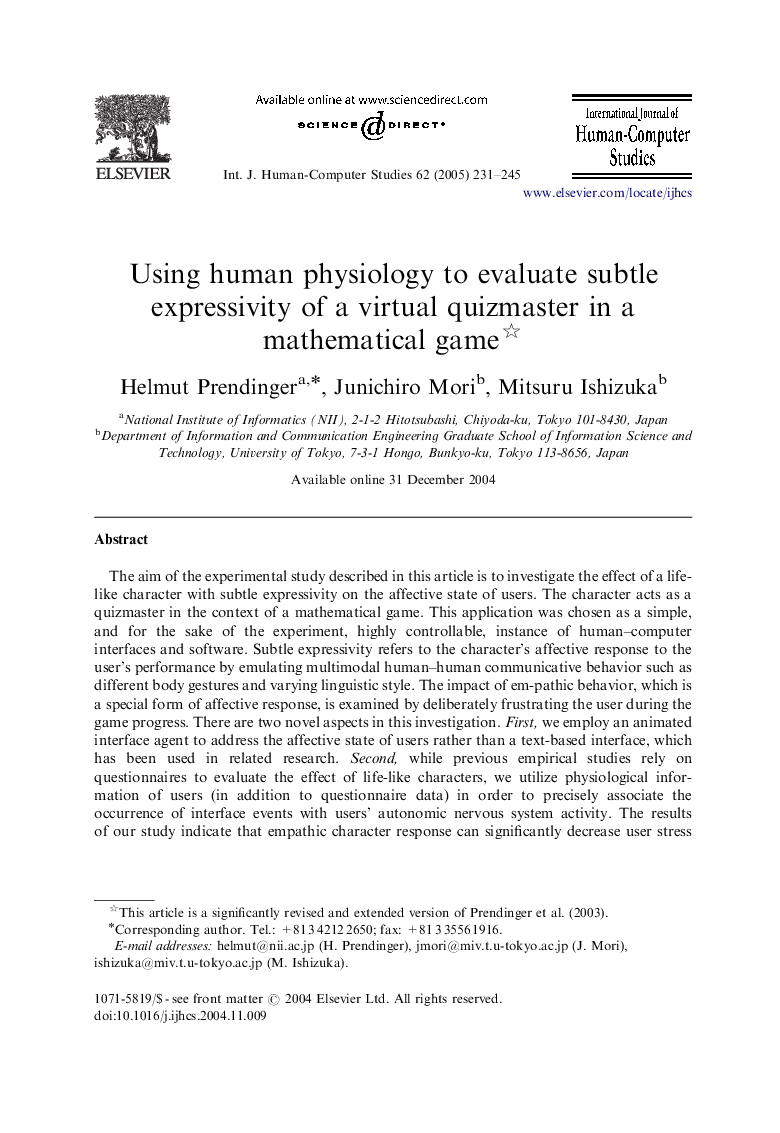| Article ID | Journal | Published Year | Pages | File Type |
|---|---|---|---|---|
| 9652534 | International Journal of Human-Computer Studies | 2005 | 15 Pages |
Abstract
The aim of the experimental study described in this article is to investigate the effect of a life-like character with subtle expressivity on the affective state of users. The character acts as a quizmaster in the context of a mathematical game. This application was chosen as a simple, and for the sake of the experiment, highly controllable, instance of human-computer interfaces and software. Subtle expressivity refers to the character's affective response to the user's performance by emulating multimodal human-human communicative behavior such as different body gestures and varying linguistic style. The impact of em-pathic behavior, which is a special form of affective response, is examined by deliberately frustrating the user during the game progress. There are two novel aspects in this investigation. First, we employ an animated interface agent to address the affective state of users rather than a text-based interface, which has been used in related research. Second, while previous empirical studies rely on questionnaires to evaluate the effect of life-like characters, we utilize physiological information of users (in addition to questionnaire data) in order to precisely associate the occurrence of interface events with users' autonomic nervous system activity. The results of our study indicate that empathic character response can significantly decrease user stress and that affective behavior may have a positive effect on users' perception of the difficulty of a task.
Keywords
Related Topics
Physical Sciences and Engineering
Computer Science
Artificial Intelligence
Authors
Helmut Prendinger, Junichiro Mori, Mitsuru Ishizuka,
